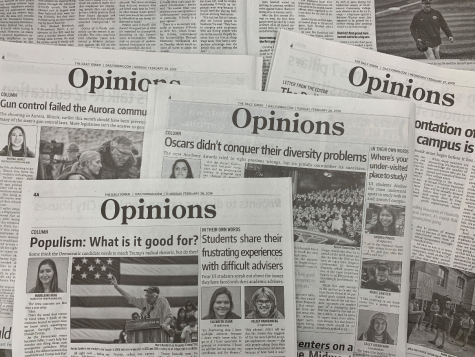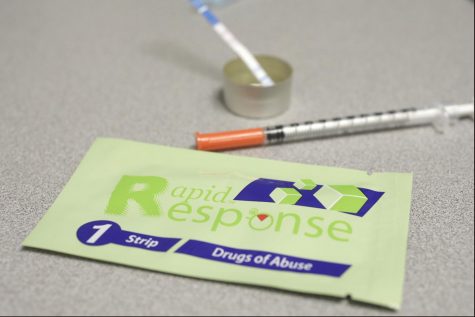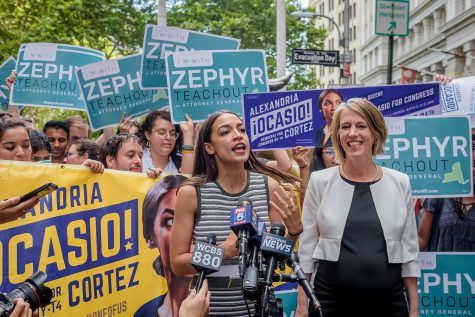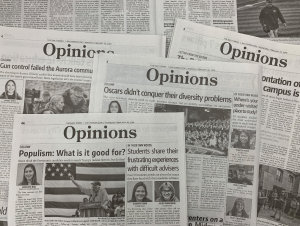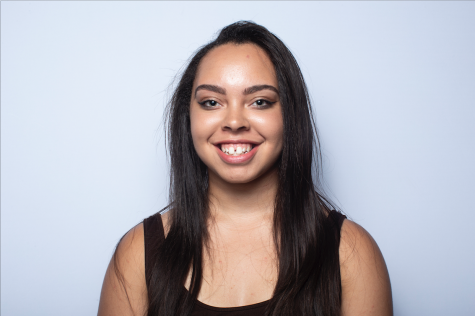Shaw: #DoesUIowaLoveMe? Maybe not, but there’s hope for a future where it does
The marginalized voices of those on campus are speaking out and shedding light on the mistreatment, discrimination, and inequality they have faced. I am one of them.
Icicles form on the Old Capitol on Monday, Jan. 28, 2019.
March 3, 2019
On Feb. 25 at around 8 p.m., a slew of students took to social media to share their experiences of mistreatment, discrimination, and inequality under #DoesUIowaLoveMe. Their outcry came as a response to the University of Iowa’s #iloveUIOWA social-media campaign for the institution’s 172nd birthday.
The #DoesUIowaLoveMe group is composed of students, faculty, and staff who came together at the Latino Native American Cultural Center on Feb. 21, according to the group’s Instagram post.
RELATED: Shaw: Racial microaggressions are still apparent, discrimination persists in the classroom
“Our intention was to build a coalition with the mission of cultivating and promoting a platform that allows underrepresented students to speak their truth and share their experiences,” according to #DoesUIowaLoveMe’s Instagram.
https://www.instagram.com/p/BuXtvVfH2bD/
The stories that have been posted on social media chronicle incidents of racism, ethnocentrism, sexism, sexual assault and abuse, and microaggressions from marginalized groups such as the Latinx community, women, people of color, LGBTQ-identifying individuals, and more. This movement has an important role of giving voice to those people and communities who don’t always have the same or equal opportunities to speak out about issues affecting them, their safety, and their success here at the university.
In my first semester at the UI, I was subject to an environment in which I felt like I could not be myself or embrace my culture as a racially mixed woman. My roommate carried out repeated instances of microaggressions, ridiculing my natural afro and criticizing the smell that permeates when a black person straightens their hair.
RELATED: #DoesUIowaLoveMe? UI students ask question in social-media movement
I hid my true self, subverting my black identity to that of a white one so I would feel more comfortable in my own living quarters. I put my hair in a bun before walking back from the dorm showers so she wouldn’t see my natural afro. I only straightened my hair when she wasn’t in the room. I made sure my black mother and her avoided all kinds of face-to-face contact. I had to protect myself. I had to hide myself.
As people with marginalized identities, we are often expected by those in power to speak to our experience…That just isn’t fair.
Following that interaction, I took a course in which a teaching assistant asked a black woman in my class to speak to the experiences of her entire community, since that woman was “obviously” oppressed before. This is a common microaggression I have experienced for most of my life in predominantly white institutions and communities.
As people with marginalized identities, we are often expected by those in power to speak to our experience. While that may not seem offensive to some, as it is an attempt to understand the struggles of oppression we face, it is not the responsibility of one person to represent and speak as the voice of an entire community. That just isn’t fair.
RELATED: Students share #DoesUIowaLoveMe stories at rally
The #DoesUIowaLoveMe movement brings up issues of ethnocentrism, racism, and intolerance on campus. These problems do not only fall on the shoulders of the university administration, but the individual mindsets, perspectives, and actions of faculty, staff, and students on campus.
With that being said, the UI does need to step up and show that it supports the safety and freedom of all students, particularly the minority students who are already underrepresented on campus. UI Vice President for Student Life Melissa Shivers delivered a message with the university, addressing the movement and stating there is a Diversity, Equity, and Inclusion Action Plan that will be shared with the UI community on April 4.
In the meantime, show your love and support of those marginalized voices in the UI community. Standing in solidarity is what we need right now in such a divided social climate.




